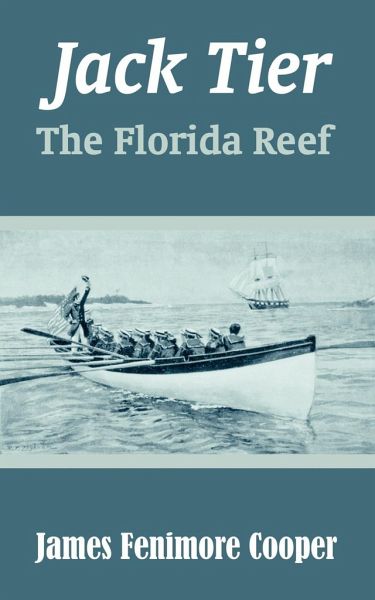
Jack Tier
The Florida Reef
Versandkostenfrei!
Versandfertig in 1-2 Wochen
25,99 €
inkl. MwSt.
Weitere Ausgaben:

PAYBACK Punkte
13 °P sammeln!
This tale of the sea was written in 1847-48, and during the same year J. Fenimore Cooper was still occupied with the Naval Biographies, and also with The Crater. It was very seldom that he was actually engaged in writing two novels at the same time, but such was the case with The Crater and Jack Tier. The last, however, appeared as a monthly serial in "Graham's Magazine," and under the title of Rose Budd. When completed it was reprinted in a book form, and the name was changed to one much more appropriate. The date is the period of the Mexican War, when peace had only been proclaimed a few mon...
This tale of the sea was written in 1847-48, and during the same year J. Fenimore Cooper was still occupied with the Naval Biographies, and also with The Crater. It was very seldom that he was actually engaged in writing two novels at the same time, but such was the case with The Crater and Jack Tier. The last, however, appeared as a monthly serial in "Graham's Magazine," and under the title of Rose Budd. When completed it was reprinted in a book form, and the name was changed to one much more appropriate. The date is the period of the Mexican War, when peace had only been proclaimed a few months earlier. The opening scenes occur at the wharves of New York and in Long Island Sound, where the Water-Witch had appeared nearly twenty years before. There is not the least similarity, however, between the plots or the incidents of the two books. It is indeed remarkable that after writing so large a number of tales of the sea, there should be still so much freshness and variety, in the latest of the series, both in the plot and in the details of the narrative. James Fenimore Cooper (1789-1851) was an American novelist, travel writer, and social critic, regarded as the first great American writer of fiction. He was famed for his action-packed plots and his vivid, if somewhat idealized, portrayal of American life in the forest and at sea.













